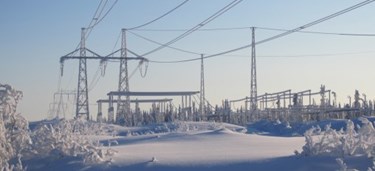ABB Wins $45M Order To Strengthen Swedish Power Grid

400 kilovolt (kV) substations to enhance grid reliability and increase power security
ABB, a global leader in power and automation technology, wins orders worth $45M to strengthen Swedish power grid from Svenska kraftnät, the Swedish National Grid operator, to supply three 400 kilovolt (kV) substations.
The Sege 400 kV substation in southern Sweden will be replaced to improve grid reliability and supply quality power to the city of Malmö and to the Skåne region. In northern Sweden, two new 400 kV substations, Djuptjärn and Högnäs, will secure power supply to the city of Kalix. Högnäs, will also enable the integration of clean wind energy to the national grid in the Västerbotten region. The substations are scheduled to be commissioned in 2015.
“These substations will enhance grid reliability and transmission efficiency, facilitating the supply of quality power to consumers” said Claudio Facchin, Head of ABB’s Power Systems division. “They will deploy ABB’s latest technologies including the combined Disconnector Circuit Breaker which helps to reduce the substation’s footprint.“
ABB’s project scope includes the design and supply of engineered packages for the high-voltage air-insulated switchgear (AIS) substations. Key products and systems to be supplied cover a range of high-voltage equipment including an innovative combined disconnector circuit breaker (DCB).This DCB integrates the disconnecting function into the circuit breaker and eliminates the need for two separate free-standing disconnectors, making it possible to reduce the footprint of the substation by up to 50 percent. The substations will also be equipped with IEC 61850 based open control and protection systems and equipment.
ABB is the world’s leading supplier of turnkey air-insulated, gas-insulated and hybrid substations with voltage levels up to 1,100 kV. These substations facilitate the efficient and reliable transmission and distribution of electricity with minimum environmental impact, serving utility, industry and commercial customers as well as sectors like railways, urban transportation and renewables.
Source: ABB
